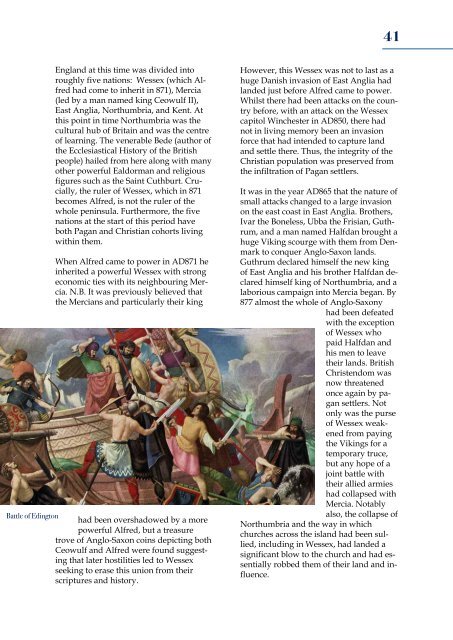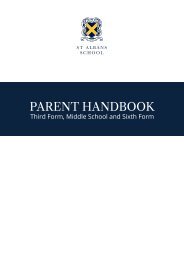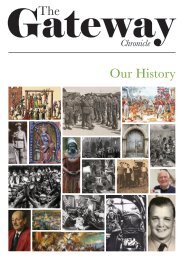You also want an ePaper? Increase the reach of your titles
YUMPU automatically turns print PDFs into web optimized ePapers that Google loves.
41<br />
England at this time was divided into<br />
roughly five nations: Wessex (which Alfred<br />
had come to inherit in 871), Mercia<br />
(led by a man named king Ceowulf II),<br />
East Anglia, Northumbria, and Kent. At<br />
this point in time Northumbria was the<br />
cultural hub of Britain and was the centre<br />
of learning. <strong>The</strong> venerable Bede (author of<br />
the Ecclesiastical History of the British<br />
people) hailed from here along with many<br />
other powerful Ealdorman and religious<br />
figures such as the Saint Cuthburt. Crucially,<br />
the ruler of Wessex, which in 871<br />
becomes Alfred, is not the ruler of the<br />
whole peninsula. Furthermore, the five<br />
nations at the start of this period have<br />
both Pagan and Christian cohorts living<br />
within them.<br />
When Alfred came to power in AD871 he<br />
inherited a powerful Wessex with strong<br />
economic ties with its neighbouring Mercia.<br />
N.B. It was previously believed that<br />
the Mercians and particularly their king<br />
Battle of Edington<br />
had been overshadowed by a more<br />
powerful Alfred, but a treasure<br />
trove of Anglo-Saxon coins depicting both<br />
Ceowulf and Alfred were found suggesting<br />
that later hostilities led to Wessex<br />
seeking to erase this union from their<br />
scriptures and history.<br />
However, this Wessex was not to last as a<br />
huge Danish invasion of East Anglia had<br />
landed just before Alfred came to power.<br />
Whilst there had been attacks on the country<br />
before, with an attack on the Wessex<br />
capitol Winchester in AD850, there had<br />
not in living memory been an invasion<br />
force that had intended to capture land<br />
and settle there. Thus, the integrity of the<br />
Christian population was preserved from<br />
the infiltration of Pagan settlers.<br />
It was in the year AD865 that the nature of<br />
small attacks changed to a large invasion<br />
on the east coast in East Anglia. Brothers,<br />
Ivar the Boneless, Ubba the Frisian, Guthrum,<br />
and a man named Halfdan brought a<br />
huge Viking scourge with them from Denmark<br />
to conquer Anglo-Saxon lands.<br />
Guthrum declared himself the new king<br />
of East Anglia and his brother Halfdan declared<br />
himself king of Northumbria, and a<br />
laborious campaign into Mercia began. By<br />
877 almost the whole of Anglo-Saxony<br />
had been defeated<br />
with the exception<br />
of Wessex who<br />
paid Halfdan and<br />
his men to leave<br />
their lands. British<br />
Christendom was<br />
now threatened<br />
once again by pagan<br />
settlers. Not<br />
only was the purse<br />
of Wessex weakened<br />
from paying<br />
the Vikings for a<br />
temporary truce,<br />
but any hope of a<br />
joint battle with<br />
their allied armies<br />
had collapsed with<br />
Mercia. Notably<br />
also, the collapse of<br />
Northumbria and the way in which<br />
churches across the island had been sullied,<br />
including in Wessex, had landed a<br />
significant blow to the church and had essentially<br />
robbed them of their land and influence.


















